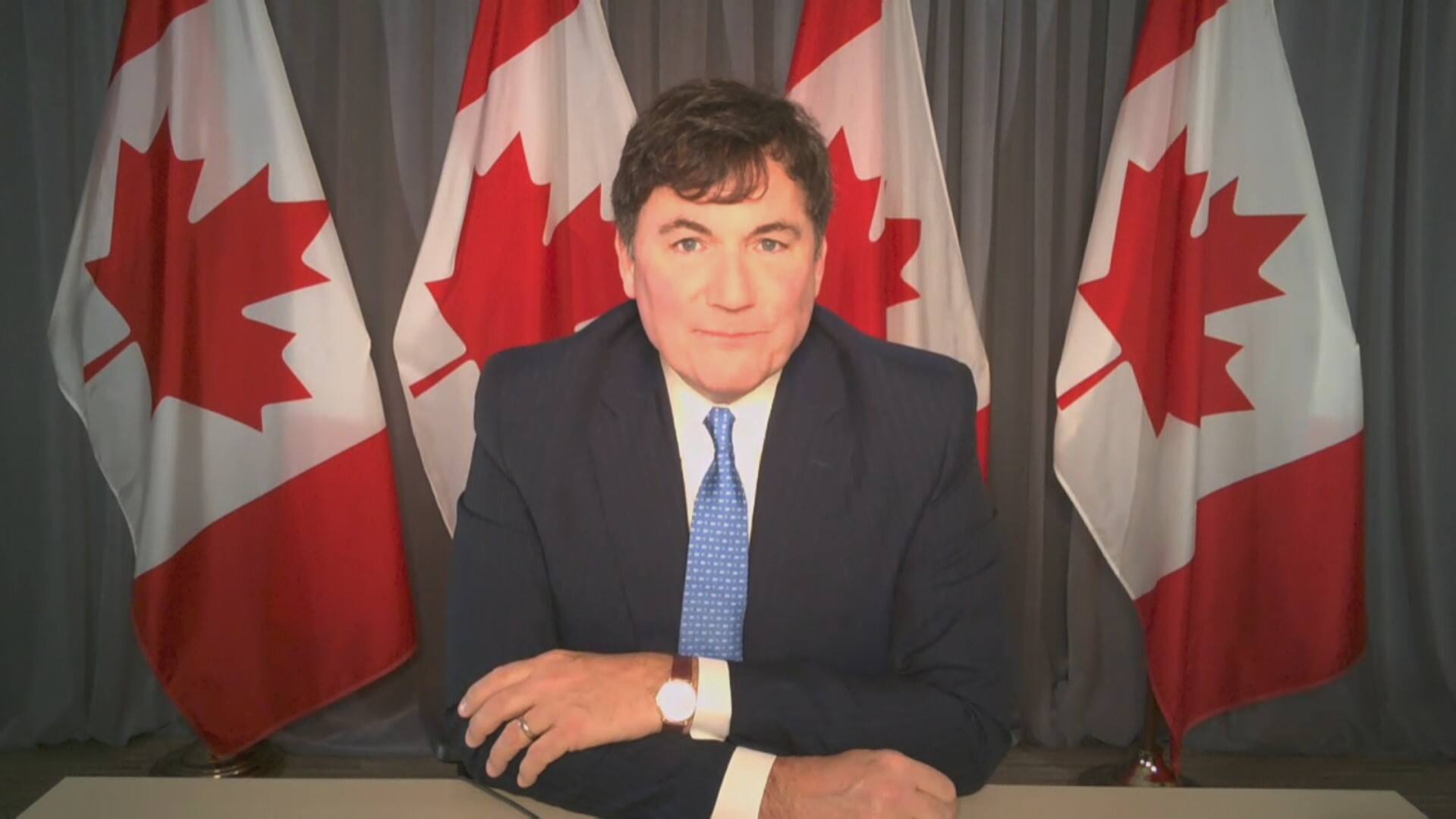Intergovernmental Affairs Minister Dominic LeBlanc says that unlike in previous waves of COVID-19, simultaneous requests for federal help from several provinces have put added pressure on Ottawa’s response.

Simultaneous provincial requests for aid and the sheer number of cases make this Omicron-driven wave of the COVID-19 pandemic different when it comes to Ottawa’s response, says Intergovernmental Affairs Minister Dominic LeBlanc.
Unlike other waves, the record-breaking surge of cases this winter struck at much the same time across jurisdictions in Canada, “and many provinces, at the same time, are requesting more and more federal support,” LeBlanc said in an interview on Rosemary Barton Live airing Sunday.
“Obviously, our job is to do whatever we can to support them,” he told CBC chief political correspondent Rosemary Barton. “We’re confident that we’re in a position to respond to those requests. But unlike previous waves, they’re sort of all coming at the same time.”
Several provinces, including Quebec and Ontario, have set new record highs for hospitalizations this month.
“These are tough weeks, we’re in very tough weeks now,” LeBlanc said.
WATCH: Intergovernmental affairs minister on federal-provincial pandemic co-operation:

Provinces seek federal government support as Omicron strains health-care system
CBC chief political correspondent Rosemary Barton speaks with Intergovernmental Affairs Minister Dominic LeBlanc as provinces battle record-high levels of COVID-19 infections. 8:33
The federal government promised earlier this month that it would deliver 140 million rapid tests to provinces before the end of January, and it discussed that goal again in a meeting with premiers last Monday.
“Frankly, the conversation with premiers last Monday evening was extremely encouraging and collaborative,” LeBlanc said.
Rapid test deliveries in flux
The promise to deliver millions of rapid tests is a key measure, as testing systems have been strained across the country, and several provinces have limited the availability of PCR tests. But some provinces have said rapid test deliveries have been delayed.
“Our last confirmed shipment will be near the end of January, and we don’t know of any coming after that, so we have to be frugal with the supply,” New Brunswick Health Minister Dorothy Shephard told Barton in a separate interview on Sunday.

LeBlanc said there’s no issue getting tests to provinces once they’re on Canadian soil, but this country lacks a “robust domestic supply.” Still, he remained confident that the federal government would fulfil its pledge.
“The challenge we have — and it’s seen around the world — is we don’t have as firm and as clear a line of sight on the specific delivery dates that we would like,” he said.
Rapid tests have been a key point of criticism for the Conservative opposition for much of the pandemic.
“There should have been hundreds of millions of these tests already being used over the course of the last year, and the Trudeau government failed to deliver on that,” Conservative Leader Erin O’Toole said earlier this month.
Also on the horizon are potential approvals of use for antiviral pills developed by Pfizer and Merck that could provide additional treatment options.
“We’re hopeful that the therapeutic antiviral treatments may be approved soon and will be in a position to send — if their approval is given — initial doses to provinces and territories,” LeBlanc said.
Long-term conversation to wait
LeBlanc reiterated the government’s position that a longer-term conversation about the division of cost-sharing in the Canadian health-care system would have to wait until the end of the pandemic.
Provinces have asked that Ottawa increase its share of the costs to 35 per cent from 22 per cent.
“We’ve also said we recognize that the government of Canada should increase the transfers to provinces for long-term, sustainable, world-class public health care. But we’ve also said that there should be a greater transparency and greater data in terms of the result that provinces achieve for those investments,” LeBlanc said on Sunday.
Some experts say federal investment is just one part of structural reforms that would improve the system overall.
You can watch full episodes of Rosemary Barton Live on CBC Gem, the CBC’s streaming service.

